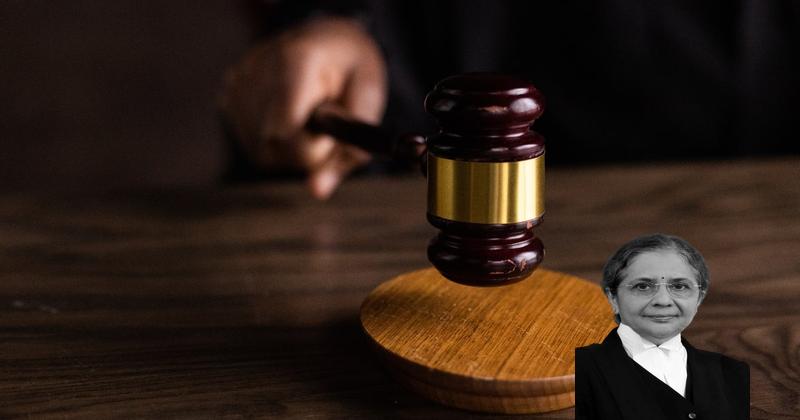Delve into the intricate legal analysis of a noteworthy case concerning the rights of a Mirashi tenant in a mortgage redemption scenario. The court’s detailed examination of statutory provisions such as the Abolition Act and the Indian Trusts Act sheds light on the persistence of the mortgagor’s redemption rights despite land resumption. Stay tuned to unravel the complexities of this case!
Facts
- The mortgagor executed a mortgage deed in favour of the mortgagee on 14.05.1947 for Rs. 900
- The mortgagor’s right of redemption was extinguished on 24.03.1987 after the dismissal of the appeal.
- The mortgaged land was under a hereditary tenancy and subject to the Bombay Paragana and Kulkarni Watans (Abolition) Act, 1950.
- The successors of the mortgagor filed a suit for redemption against the mortgagee in 1978.
- The suit land was not outright sold but mortgaged by conditional sale.
- The mortgagee failed to reconvey the land despite requests from the mortgagor’s successors.
- The mortgagee obtained a re-grant of the suit land in 1960 based on the Government Resolution of 17.05.1956.
- The mortgagee argued that the possession and re-grant were due to the mortgage.
- With the Abolition Act and failure to secure re-grant, the land resumed to the Government and the mortgagor-mortgagee relationship ceased.
- The re-grant made to the mortgagee resulted in the Mirashi tenant-mortgagor’s right to redeem being extinguished.
- Respondents filed a second appeal before the High Court.
- The High Court set aside the findings of the Trial Court and First Appellate Court.
- The High Court directed the Trial Court to draw a preliminary decree of redemption of mortgage in favor of the Respondents.
- The District Court reiterated the reasoning that the land had been resumed to the Government under the Abolition Act, ending the mortgagor-mortgagee relationship.
Also Read: Legal Analysis of Recruitment Rules for Director at RIMS
Issue
- The central issue in this appeal is whether the permanent Mirashi tenant’s right of redemption ceased to exist due to the resumption of the suit land under the Abolition Act and its re-grant to the mortgagee.
- The appellant is questioning whether the respondent, as the mortgagor, still has the right of redemption after the land was resumed and re-granted to the mortgagee.
- It is acknowledged that the mortgagor was a permanent Mirashi tenant of the watandar of the suit land.
Also Read: Ensuring Constitutional Rights: Analysis of Default Bail in Legal Case
Arguments
- Learned Counsel for the Appellants relied on the decisions of this Court in Collector of South Satara and Another v. Laxman Mahadev Deshpande and Others, (1964) 2 SCR 48, and Malikarjunappa Basavalingappa Mamle Desai v. Siddalingappa & Others, (1973) 3 SCC 180.
- Argued that once the Abolition Act came into force, the suit land vested with the Government and after its re-grant to the mortgagee, he became the absolute owner of the land, and all rights of the Mirashi tenant-mortgagor, including the right to redemption, came to an end.
- Reliance placed on Section 90 of the Indian Trusts Act, 1882, as well as the decisions of this Court in Jayasingh Dnyanu Mhoprekar and Another v. Krishna Babaji Patil and Another, (1985) 4 SCC 162, and Namdev Shripati Nale v. Bapu Ganapati Jagtap and Another, (1997) 5 SCC 185.
- Learned counsel for the Respondents relied on Section 90 of the Indian Trust Act, 1882.
- Counsel referred to the decisions in Jayasingh Dnyanu Mhoprekar and Namdev Shripati Nale to support their argument.
- They argued that the benefit acquired by the mortgagee through the re-grant should benefit the Mirashi tenant-mortgagor.
- Pointed out the proviso to Section 3 of the Abolition Act along with provisions of the Watan Act to emphasize the survival of Ramchandra’s rights as a Mirashi tenant despite land resumption by the Government.
- Argued that Ramchandra’s rights as a mortgagor, including the right to redemption, continued to exist even after the re-grant to the mortgagee.
Also Read: Legal Analysis on Reservation in Promotions and Seniority Benefits
Analysis
- Sub-sections (1) and (2) do not apply to land with specific settlement terms allowing alienation without State Government sanction.
- Valid alienation with State Government sanction under Section 5 of the Watan Act is exempt from the restrictions.
- Leases on such exempted land are subject to the Bombay Tenancy and Agricultural Lands Act, 1948.
- Section 90 of the Indian Trusts Act, 1882 states the obligation of qualified owners to hold advantages gained for the benefit of others interested in the property.
- Watandars are restricted in mortgage, charge, alienation, or lease beyond their natural life term without proper sanction.
- Clause (a) of Section 8 applies to watans with service commutation settlements unless alienation rights without State Government sanction are specified.
- The Abolition Act’s provision of lease continuation and conditions for occupancy and transfer of regranted land are outlined.
- Watan Act’s abolition of certain watans, rights to office, and resumption of watan land subject to land revenue payment is detailed.
- Section 5 of the Watan Act prohibits alienation of watan and watan rights.
- The failure of the mortgagor to pay the occupancy price and seek a re-grant does not affect their rights as a Mirashi tenant.
- The right to redeem a mortgage subsists despite any sale or forfeiture of the mortgagor’s rights.
- Default by a possessory mortgagee in fulfilling obligations results in attracting provisions of Section 90 of the Indian Trusts Act.
- The mortgage executed by the possessory mortgagee survives the resumption of the suit land under the Abolition Act.
- The re-grant obtained by the first respondent (qualified owner) must benefit the mortgagor-appellant as per Section 90 of the Indian Trusts Act.
- The re-grant based on possession as a mortgagee is linked to the underlying mortgagor-mortgagee relationship.
- The benefit accrued to the mortgagee should ultimately benefit the Mirashi tenant-mortgagor.
- The mortgagee, by obtaining a re-grant in his favor, acted in a fiduciary capacity for the mortgagor’s benefit.
- The mortgagee is obligated to hold rights acquired in the mortgaged property for the mortgagor’s benefit as per Section 90 of the Indian Trusts Act.
- The mortgagee’s advantage through the re-grant should be surrendered to the benefit of the mortgagor.
- The rights of the Mirashi tenant-mortgagor continue to subsist despite the resumption of the land under the Abolition Act.
- The re-grant made in favor of the mortgagee was possible due to the possession obtained as a mortgagee.
- The Government Resolutions allowing re-grants were not questioned subsequently, leading to legal implications under the Indian Trusts Act.
- The effect of the Government Orders on obtaining re-grants and their impact on the mortgagor’s rights were considered in prior judgments.
- The mortgagor-mortgagee relationship continues to exist despite statutory provisions such as the Abolition Act.
- Watans were abolished under the Abolition Act, and the lands vested with the Government, subject to certain conditions for re-grant.
- The watandar’s failure to seek re-grant resulted in orders granting lands to those in actual possession.
- The Mirashi tenant’s failure to apply for re-grant according to the State Government orders led to legal implications.
- The various provisions of the Abolition Act and related laws emphasize the protection of tenancy rights even after land resumption.
- The law regarding the applicability of Section 90 of the Indian Trusts Act, 1882, has been clearly laid down by the court.
- The Court referred to the cases of Mritunjoy Pani v. Narmanda Bala Sasmal and Nabia Yathu Ummal v. Mohd. Mytheen for guidance on this matter.
- The Court expressed its agreement with the decisions in these cases.
- The litigation in these cases was not related to the rights of a permanent tenant under watandar.
- The point involved therein was not related to the effect of the order of re-grant made in favour of the mortgagee.
- The dictum laid down in the aforementioned judgments is not applicable to the facts of the case at hand.
- The question involved in the present litigation is squarely covered by the judgments in Jayasingh Dnyanu Mhoprekar and Namdev Shripati Nale.
Decision
- No reason found to interfere with the impugned judgment
- The instant appeal is dismissed
Case Title: SHANKAR SAKHARAM KENJALE(D) BY LRS. Vs. NARAYAN KRISHNA GADE . (2020 INSC 338)
Case Number: C.A. No.-004594-004594 / 2010



